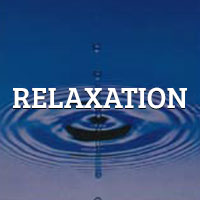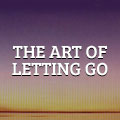Sleep, the innocent sleep, sleep that knits up the ravell’d sleeve of care!
Shakespeare’s Macbeth
Why is a good night’s sleep so elusive for so many people? There are many reasons but undoubtedly a significant factor is an overactive mind. Mental agitation of one kind of another causes a build up of stress in the body and inhibits the relaxation response.
Body and mind are inseparable. Our body is a storehouse of mental tensions and anxieties. Relax the body and you relax the mind. In traditional yoga, increasing the health and flexibility of your body is only important in so far as it helps you to master your thoughts and emotions.
Benefits to the body are secondary. Stilling the restless mind is the challenge. Clearly, in this sense, the ancient practices of yoga have much to offer 21st century Westerners overdosed on mental stimulation.
For the yogi of course, stilling the mind is a pre-requisite for experiencing union with the Divine. On a more mundane level it can also be seen as a pre-requisite for a decent night’s sleep!
Conscious breathing
A classic yoga strategy for relaxing your mind is to Befriend Your Breath. Conscious deep breathing is instantly calming. Consciously directing the energy of your breath to stressed parts of your body or simply becoming aware of the movement of your breath in your body serves to give your brain the message to chill out. All is well. No need to stress.
Instead of allowing your thoughts to incessantly take you on labyrinthine excursions into what happened yesterday and what might happen tomorrow, you come to the present moment by staying with your breath and letting it soothe your body. Voice guidance in this process is invaluable.
It enables you to move into a more passive mode, gradually surrendering mental control. One of the main techniques on my CD Relaxation for Sleep is to focus your mind on the soothing power of the breath.
Yoga Nidra
When it comes to improving the healing quality of your sleep, the most powerful gift from the yoga tradition is undoubtedly the deep relaxation practice known as yoga nidra or psychic sleep. All my relaxation CDs are based on this technique. I believe it to be a Therapy of the Future.
The secret of success with the practice is to do it on a daily basis, preferably at the same time and the same place. If you are having problems sleeping it makes sense to do a yoga nidra practice last thing at night and to have your recording on hand to use during the night if you are in the habit of waking up and not being able to get back to sleep.
Meditation
It is now well understood that a daily practice of sitting meditation is a powerful antidote to the build up of stress and anxiety. Meditation is much more than a tool for pacifying for the mind however. Regular practice brings you closer to your spiritual source or essence. You become more fully who you truly are and are able to flow creatively with the vicissitudes of life, rather than reacting negatively to them.
On a more mundane level, a daily meditation practice can help to give you the skills to be more objective about your problems. In meditation you observe your thoughts rather than becoming caught up in them. You begin to develop what is known as a ‘witness consciousness’.
This allows you to adopt the attitude ‘this too will pass’ when you are in the grip of emotional upheaval. Taken into your marrow bone, absorbed as an attitude of mind, a ‘this too will pass’ attitude can make even the most distressing situation less painful.
When it comes to using meditation to help serious sleeping problems, we do meet a catch 22 situation however. Most people find it difficult to meditate at the best of times. If you are tired and irritable through lack of sleep it is well nigh impossible. The challenging word discipline comes in at this stage.
Making the effort at the same time and same place each day even for only 5 minutes is better than nothing and you will be surprised how soon you are able to lengthen the time of your sit and how addictive the practice will become.
Please note, meditation is not a replacement for yoga nidra. Ideally the practices complement one another. If you are having problems sleeping your priority would be a yoga nidra at night. Meditation would be your morning practice. I discuss the differences between the practices in my article Therapy of the Future.
Diet
In the second half of the 20th century a saintly woman, who became known as Peace Pilgrim, abandoned all material comforts and spent the last 25 years of her life walking across America in the name of peace. When asked how she could account for her spiritual courage and tenacity she always replied ‘I don’t eat junk food and I don’t think junk thoughts!’
These days there is a great deal of controversy over what constitutes a healthy diet. It makes a great deal of sense, however, to avoid stimulating foods for a few hours before retiring. This means eliminating all caffeine, alcohol and sugar. From personal experience I would also suggest avoiding foods containing artificial colourings, preservatives and spices.
There is an old saying, breakfast like a king, lunch like a servant and dine like a pauper. Your body does not need the job of digesting a big meal in the evening. Eating late may make you feel sleepy in the sense of less alert, but it is counterproductive to restful sleep.
The Power of Ritual
To help to give your brain the message that it is time for rest, I strongly recommend that you ritualise your bedtime preparations. Before lying down in bed and doing your yoga nidra practice, put in place a routine of restful activities.
These may include an evening walk, a warm shower, a relaxing ‘night cap’ of herbal tea while you read something uplifting for your soul or simply reflect with gratitude on the positives in your life while enjoying your ‘cuppa’. Burning some soothing aromatherapy oil and lighting a candle by your bedside can all help to bring you into a receptive state of mind for your yoga nidra.
Experiment with your routine until you find one that works for you. If possible turn your attention to it at the same time each evening. Consistency is a key element of success.
And, remember, nature intended us to go to bed shortly after sundown just like the animals do. The restoration processes that go on in your body are biologically geared to early nights: “Early to bed, early to rise , makes you healthy, wealthy and wise!”
A Night Time Mantra
In the words of the Buddha: Be vigilant, guard your mind against negative thoughts. In all the great spiritual traditions this is understood as being especially critical before sleep and before death. Reciting a mantra can help to discipline your mind and keep anxiety provoking thoughts at bay. A mantra does not have to be given to you by a spiritual teacher.
It is simply a phrase or a few words strung together which you repeat to yourself over and over again to calm your mind. You can make up your own. It doesn’t even have to be meaningful, although it is nice if it resonates with a spiritual aspiration. For example ‘In stillness I AM’ or ‘My soul is love’ or simply ‘All is well’
Sleeping Space
It is undoubtedly true that some spaces are more conducive to sleep than others. If your disturbed sleep persists seriously consider repositioning your bed or try sleeping in another room.
Some people are very sensitive to electromagnetic radiation. It makes sense to keep it to a minimum in the vicinity of your bed. The bedroom is not the place for televisions, phones and computers.
Very importantly sleep in complete darkness or as close as possible to it. Light inhibits the relaxation response in the brain.
Natural Sleep
Sleep is a great healer. To stay healthy and serve us well, our body and minds must be given adequate rest time. Given the increasingly stressful nature of our everyday lives, it is very understandable that so many people find themselves having to use sleeping pills to achieve this.
As a onetime user of mogodon and valium, I can vouch for the fact that drug induced sleep is nowhere near as beneficial as natural sleep with its cleansing dreaming and its waking clarity. I urge anyone suffering insomnia or unmanageable levels of stress to persevere with drug free strategies, especially yoga nidra and meditation.
I realize of course that the roots of insomnia can often lie very deep in the unconscious; unresolved grief, chronic fear or repressed trauma of one kind or another. If this is the case then it makes sense to combine your yogic practices with professional counselling or psychotherapy. Do not underestimate, however, the power of daily yoga nidra to dislodge and gradually dissipate even deepseated anxieties.
One of the many practical gems offered in Buddhist teachings is the understanding that negative experiences can be welcomed as opportunities for self transformation. Try seeing your insomnia as an invitation from the universe to deepen your self understanding and self nurturing. It could prove to be the catalyst for significant changes in your life. If it moves you to do a daily yoga nidra and a morning meditation that is definitely a positive outcome!
The Benefits of Yoga Nidra and meditation are subtle, cumulative and holistic, bringing about a gradual integration of body, mind and spirit. Not only will you sleep better but you will think better, play better and discover a whole new level of health and well being.






 sending...
sending...

bottes santiag femme pas cher…
Rather excellent post. I basically stumbled on your weblog and wished to say that I have really cherished searching your weblog posts….